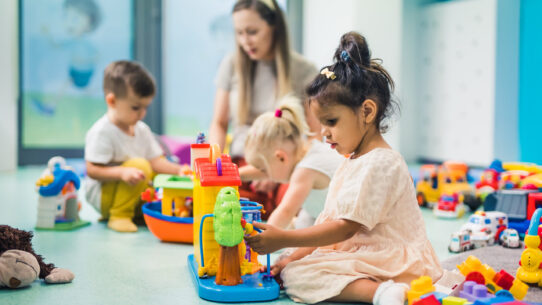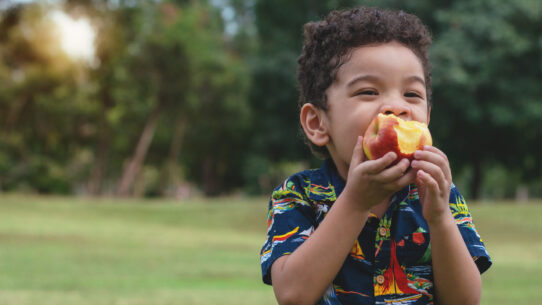Youth in foster care face a higher risk of becoming pregnant and having children compared to other youth. Our 2018 report highlighted that the one-year pregnancy rate for girls ages 13-17 in Texas foster care is five times higher than the rate among all Texas girls in that age range (5.7 percent, compared to 1.2 percent).

Better training for adults on how to talk about healthy relationships with youth in foster care is critical. Our research shows that many adults working with youth in foster care do not feel adequately prepared to talk to youth about healthy relationships and related health care concerns.
Addressing teen pregnancy in foster care has several benefits, including:
- Improving the health of the mother and baby: Only 60 percent of youth in foster care receive timely prenatal care compared to 87 percent of other teens and adults enrolled in Medicaid. Youth in foster care are also 30 percent more likely to give birth to a baby with a low birth weight compared to peers. Both are signs of health risks for babies and mothers.
- Improving the educational and economic opportunities for the mother, father, and baby: 30 percent of all teen girls who drop out of school cite pregnancy or parenthood as the reason. Pregnant and parenting youth in foster care are twice as likely to drop out of school compared to other teen parents.
- Preventing additional entries into the foster care system: A 2012 study found that children born to youth in the Texas foster care system were more than twice as likely to spend some time in foster care compared to children of other teen mothers under age 18.
The number of pregnant and parenting youth in foster care is low enough for the state to provide each one of them ample support to be healthy and try to safely stay together with their baby. For example, there were 344 expectant youth and 187 minor parents in Texas foster care in FY 2018.
SUMMARY OF THE BILLS:
HB 473/SB 1288: Data Regarding Pregnant and Parenting Youth in Foster Care
This bill improves state data collection and reporting on pregnant and parenting youth in foster care to inform state decisions about expanding services and supports. The data collection envisioned in this bill will:
- Help the state support youth in foster care who are fathers;
- Identify the age at which youth in foster care are becoming parents to inform how early youth need to begin receiving information regarding healthy relationships;
- Help the state determine whether parenting youth are being placed in family-like foster care settings or more restrictive settings and how often parenting youth change placements;
- Help the state determine whether it is more difficult for parenting youth to find a permanent home; and
- Ensure more parenting youth in foster care are able to maintain custody of their children.
HB 474/SB 1289: Expanding High-Quality Specialized Foster Homes and Facilities
To understand where there are service gaps that need to be addressed, this bill ensures DFPS’ foster care needs assessment includes placements specializing in prenatal, postpartum, or parenting supports for youth. This bill will also help the state implement the federal Family First Prevention Services Act (FFPSA) by collecting information on placements that will be reimbursable using federal funding, including: licensed residential family-specialized substance use treatment facilities; qualified residential treatment programs as defined in the FFPSA; supervised independent living; and settings specializing in serving survivors of human trafficking.
HB 475/SB 1290: Preserving Young Families in Foster Care Where HIP is Unavailable
This bill ensures all pregnant and parenting youth receive basic parenting education and services that will help preserve their young families. DFPS has an effective Prevention and Early Intervention program known as Helping through Intervention and Prevention (HIP), which provides voluntary support services to current and former foster youth who are pregnant or parenting a child under the age of three. HIP is proven to help pregnant and parenting youth establish stable, thriving families and can help end a cycle of future involvement with CPS. Unfortunately, HIP services are still unavailable in several areas of the state including the Panhandle, the Valley, and El Paso. This bill will ensure that youth in areas where HIP is unavailable receive at least some information to help support their new family.
HB 1907/SB 1291: Ensuring Healthy Relationships for Youth in Foster Care
This bill establishes optional trainings for professionals working with youth in foster care, such as CPS caseworkers, caregivers, attorneys, guardians ad litem, CASAs, and judges, to help them communicate important information to youth in foster care about healthy relationships, health care, and supports available for pregnant and parenting youth. These trainings would assure more adults know how to talk to youth about things like goal setting; planning and decision making; protection from sexually transmitted infections, unintended pregnancy, and exploitation; general health and wellness; and confidentiality.



